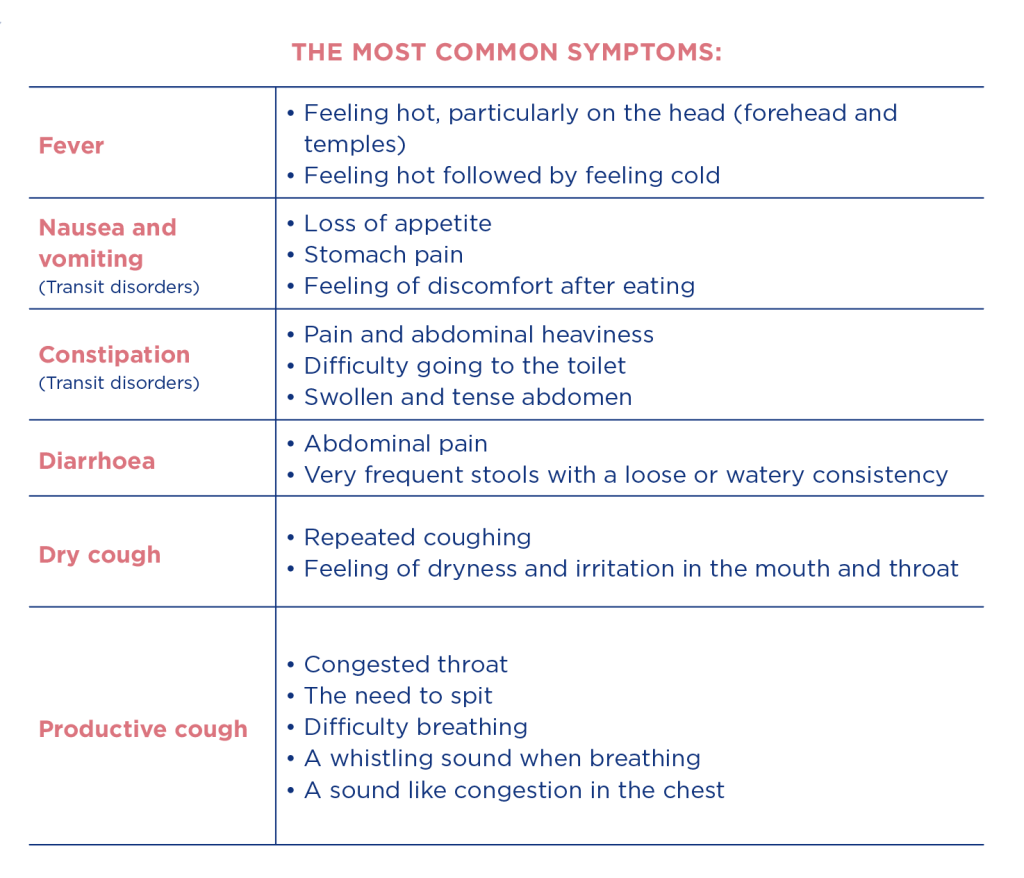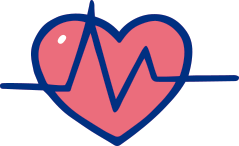1. Knowing how to identify symptoms and deal with a disease

Each disease has its own specific symptoms
Each disease has its own specific symptoms. But the same symptom can be common to several diseases.
For example, fever is a symptom that can be caused by either malaria, diarrhoea, tuberculosis or other diseases. However, if the fever is accompanied by a cough with bloody sputum, for example, healthcare workers will focus on a more specific group of diseases, including tuberculosis.

Find out more
Each symptom relates to a system or structure in the human body, for example:
- Palpitations (feeling your heart beat faster, having difficulty breathing, feeling of suffocation, etc.) relate to the heart and blood vessels.
- Coughing affects the respiratory system
- Nausea, vomiting and transit issues are digestive system disorders.
There are 3 stages in the course of a disease, during which signs of the disease progress:
- Disease onset is accompanied by a variety of symptoms. This is when the decision has to be made to go to the health centre to deal with a possible disease as quickly as possible.
- Prodromal stage: all symptoms are usually present and active, but some may disappear once the disease has been established and give way to new symptoms.
- Progression stage to recovery: the symptoms disappear with treatment, sometimes slowly, until full recovery. The initial signs of improvement do not mean the medicine should be stopped, but on the contrary, it is essential to adhere to the duration of treatment specified by healthcare workers.